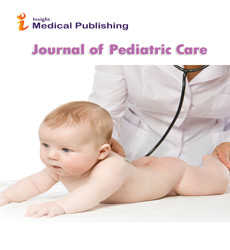Abstract
Pediatric Congenital Diaphragmatic Hernia
Congenital diaphragmatic hernia is a condition characterized by a defect in the diaphragm that leads to the protrusion of the abdominal contents in the thoracic cavity which interferes in the pulmonary development. Diaphragmatic eventration is a very infrequent condition in children, asymptomatic or commonly present with low or gastrointestinal respiratory manifestations and whose diagnosis is based on an incidental finding when requesting images to verify a diagnostic suspicion occurring in most cases of late occurrence. It can be of congenital or acquired cause. The prognosis in general is good, with probable complications being chronic lung infection, diaphragmatic rupture, ulcers and stomach volvulus. Treatment is a topic depend size and location of the defect, size and location of the defect, some pediatric surgeons do not operate if the patient is asymptomatic and only plicate the symptomatic patients. Due to its importance in pediatric population, through this is intended to make a quick review of the updated literature on the subject contributing to have relevant information regarding the issue cooperating with the diagnosis and appropriate treatment in our practice.
Author(s):
Irina Suley Tirado Pérez, Ulfran De Jesús Castro Salas and Andrea Carolina Zarate Vergara ACZ
Abstract | Full-Text | PDF
Share this

Google scholar citation report
Citations : 130
Journal of Pediatric Care received 130 citations as per google scholar report
Abstracted/Indexed in
- Google Scholar
- China National Knowledge Infrastructure (CNKI)
- Cosmos IF
- WorldCat
- Geneva Foundation for Medical Education and Research
- Secret Search Engine Labs
Open Access Journals
- Aquaculture & Veterinary Science
- Chemistry & Chemical Sciences
- Clinical Sciences
- Engineering
- General Science
- Genetics & Molecular Biology
- Health Care & Nursing
- Immunology & Microbiology
- Materials Science
- Mathematics & Physics
- Medical Sciences
- Neurology & Psychiatry
- Oncology & Cancer Science
- Pharmaceutical Sciences

